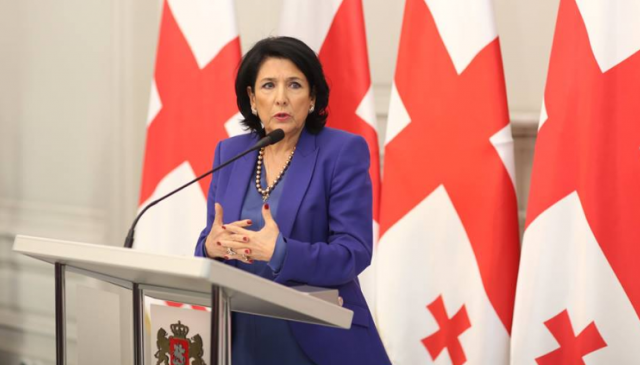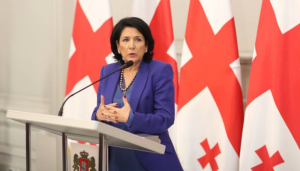Contrepoints: Distrust in Run-up to October Parliamentary Elections
The edition contrepoints.org has published an article about the current situation in Georgia ahead of the upcoming Parliamentary elections.
"Despite the encouragement of the international community, the hesitation of the opposition parties could jeopardize the adoption of the crucial electoral reform for the European future of this Caucasian country," notes the author of the article Guillaume Périgois.
The author also touches upon the release of two convicted opposition leaders, Irakli Okruashvili and Gigi Ugulava, who were pardoned by the President of Georgia Salome Zurabishvili on May 15.
"On May 15, Georgian President Salomé Zourabichvili pardoned two convicted opposition politicians, a former mayor of the capital and a former defense minister, to reduce political tensions in the run-up to the parliamentary elections this fall," reads the publication.
The article further stresses the importance of the March 8 Agreement reached between the government and the opposition for the country's political life.
"The original electoral reform agreement was struck on 8th March 2020 – facilitated by the U.S. and E.U Embassies and signed by the government and the opposition parties. Now, it appears that the reform may be in jeopardy as some opposition parties try to back away from the March 8th agreement. This brinkmanship has led to tensions rising. The United National Movement, and European Georgia, say that criminal cases against people linked to the opposition must be resolved in order to advance the Agreement of March 8 concluded with Georgian Dream, the party in power. But the Georgian Dream recalled the letter of the Agreement which does not stipulate that people actually convicted of crimes or offenses must be released. President Zourabichvili, also a former senior French official and diplomat, therefore refused to recognize that this decision was part of the agreement, which stipulates for electoral reform before the planned Parliamentary elections in October. The international community, including US officials and MEPs, urged the Georgian political parties to keep their promises and move forward with the reform," claims the author.
It is also highlights that the government’s electoral reform is seen by the EU and the US as a means of strengthening democracy in Georgia and speeding up the country's journey towards the EU and NATO.
"The government's promise to move to a fully proportional electoral system before this year's parliamentary elections was seen as an important move after the opposition protests that rocked Tbilisi in the summer of 2019. Then, for two weeks in November 2019, violent protests took place after Parliament rejected proposals to switch to this new fully proportional electoral system, with the opposition declaring that the current system gave the ruling party an advantage. But the Georgian Dream said it wanted to go ahead with the vote of the Parliament on the constitutional amendment necessary for the implementation of electoral reform, stressing that the party was the original author. GD also called on the opposition parties to abandon all threats and boycotts and to immediately honor the commitments they have made to international partners. If the electoral reform is adopted, the elections of October 2020 will be held according to a mixed proportional (120 seats) and majority (30 seats) voting system, opposite to the current mixed system (77 and 73 seats respectively).
"But the electoral reform process needs the support of the opposition parties to continue. It remains to be seen whether the latter will choose to honor the Agreement by effectively participating in it," the author of the article concludes.
Author: Guillaume Périgois
Source: contrepoints.org












